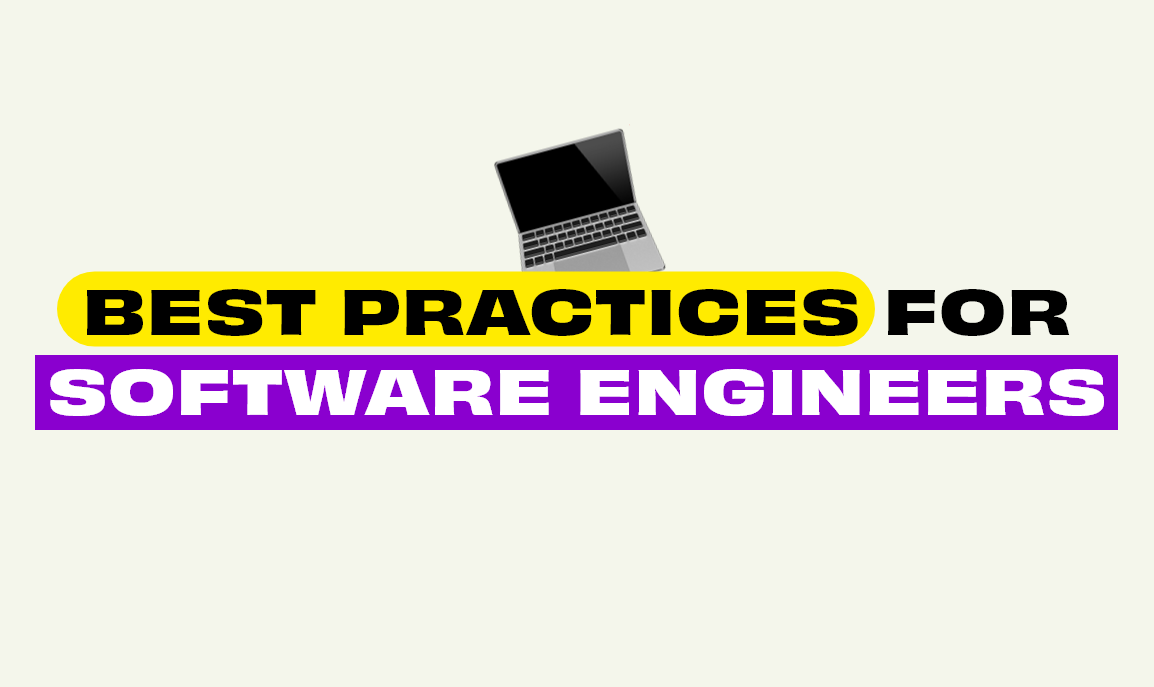
Best practices for software engineers
Code reviews are essential to the software development process, but they can be intimidating. After all, developers rarely get to review their work, especially with the knowledge that their colleagues will be scrutinising it. But code reviews don’t have to be a source of anxiety. In this blog post, we’ll explore some best practices for software engineers looking to improve their code review skills. Turn what could be a nerve-wracking experience into a productive and rewarding one.
Code reviews are a critical part of the development process for software engineers. They ensure that code is up to industry standards and even teach developers new techniques and insights that can be applied to future projects. Code reviews can also serve as a way for developers to bond and work together in a collaborative environment.
There are two key points to keep in mind about code reviews: accountability and feedback. Accountability means being honest with yourself about your work, while feedback is the ability to constructively criticise the work of others without making them feel attacked or belittled.
Here are some tips on mastering the art of code review:
1. Set Clear Goals and Expectations
Before starting any code review project, ensure everyone involved has clearly defined goals and expectations. This includes creating guidelines for how comments should be structured, what questions should be asked, and how the review should proceed. Having these things established beforehand will help everyone stay on track during the review process.
2. Keep an Open Mind
Be open-minded when reviewing someone else’s code, even if you’re unfamiliar with their style or approach. Everyone has different coding methods, so try not to make assumptions or jump to conclusions based on your preferences or experiences. Instead, focus on understanding what’s being done and why it works (or doesn’t).
3. Ask Questions
Don’t hesitate to ask questions as you review someone else’s code. This is an excellent opportunity for learning from each other. Asking clarifying questions can deepen your understanding of the project and encourage dialogue between team members about best practices for improving existing solutions. It can also lead to deeper conversations about design decisions and strategies that may have been employed during development.
4. Provide Constructive Feedback
No matter what kind of feedback you provide during a code review session, make sure it’s constructive rather than critical or derogatory towards another person’s work. Avoid personal attacks; instead, focus on offering helpful advice that can help improve the quality of the codebase overall by suggesting alternative approaches or optimisation techniques that could benefit everyone involved long term.
5. Remain Professional
Above all else, strive to maintain a professional attitude throughout your code reviews by treating each other with respect regardless of any disagreements. Working through conflicts in this manner will help ensure productive collaboration among team members and create an environment where everyone feels comfortable expressing their ideas without fear of judgment or criticism from others.
Code reviews don’t have to be intimidating. With these best practices in mind, software engineers can use them as an opportunity for growth and improvement while collaborating with their peers along the way! By mastering the art of code review now, engineers will be better prepared for future projects, too.


